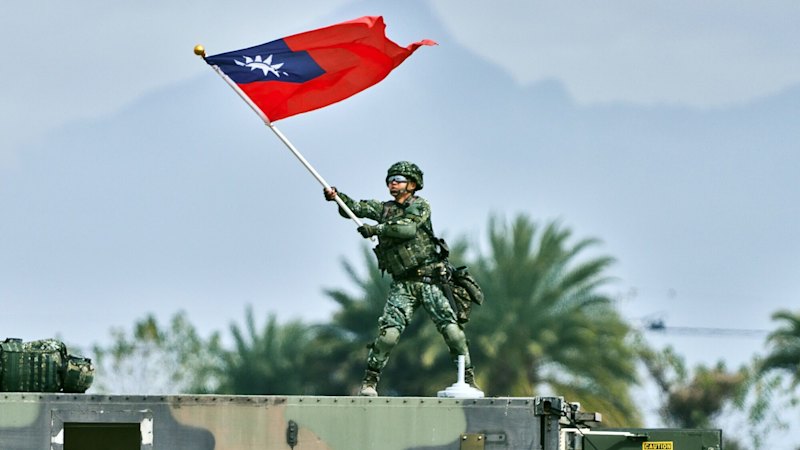
In the midst of Sudan’s relentless civil war, children have increasingly become the primary victims of brutal and indiscriminate violence that shows no sign of abating. In a single weekend of attacks this month, at least 24 boys and 11 girls were reportedly killed in communities around the city of Bara — a tragic toll that drew urgent condemnation from UNICEF and reignited global concern over the war’s deepening atrocities.
These children were not caught in the crossfire by accident — they were targeted in areas of dense civilian population, further proving that the violence has abandoned all pretense of protecting the innocent. This devastating incident stands as a grim symbol of the horrors that have engulfed millions of children across the nation. From killings to starvation, from rape to disease, Sudan’s children are enduring one of the most heartbreaking humanitarian catastrophes of the modern era. The world cannot look away.
The Humanitarian Crisis Deepens
The war in Sudan, which erupted in April 2023 between the Sudanese Armed Forces and the Rapid Support Forces, has spiraled into one of the world’s most catastrophic and underreported crises. What began as a power struggle between two rival military factions has degenerated into a total collapse of law, order, and human dignity. Now in its third year, the conflict has displaced millions, decimated infrastructure, and created a humanitarian vacuum that is being filled with starvation, disease, and death.
Nowhere is this more tragically evident than in the suffering of Sudan’s children. According to UNICEF, the number of children in need of humanitarian assistance has doubled since the war began — from 7.8 million to an estimated 15 million. These are not just numbers. They represent children who have been torn from their homes, orphaned by shelling, starved by blockades, denied medicine, and robbed of education. These are lives suspended in trauma, childhoods stolen in real-time, futures endangered before they ever had a chance to begin.
Health and Nutrition Under Siege
The violence against children is not limited to bullets and bombs. It is structural, systemic, and widespread. Malnutrition rates among children have soared, with thousands already perishing from hunger and disease due to the inability of aid agencies to reach them. International relief workers warn that, without immediate humanitarian access, tens of thousands more children in these regions are at imminent risk of dying preventable deaths.
Compounding the horror is a health crisis spiraling out of control. Disease outbreaks have flourished in the absence of functioning clinics and vaccination programs. Only 48 percent of Sudanese children now receive basic immunizations — down from over 90 percent before the war. Diseases like measles, cholera, malaria, and dengue are spreading rapidly, particularly in makeshift camps and besieged cities where clean water and medicine are nonexistent.
UNICEF warns that 770,000 children will suffer from severe acute malnutrition this year alone, with more than a million more teetering on the edge.
The healthcare system, already fragile before the conflict, has collapsed under the weight of violence, looting, and blockades. In some areas, the malnutrition levels have reached levels consistent with famine. Children are not simply dying from bullets — they are dying silently from hunger, from diarrhea, from infections that a $2 vaccine could have prevented.
The Psychological and Educational Toll
And while their bodies wither, so do their minds and spirits. The psychological impact of this war on children is immeasurable. Many have witnessed their parents killed, their homes burned, their villages razed. Rape and sexual violence are used as weapons of war, with horrifying reports emerging of babies and toddlers being assaulted. These crimes are committed with impunity, often in front of families, often in communities too broken or terrified to respond. The psychological trauma of such experiences will not end with the war — it will ripple into the next generation, planting seeds of pain, rage, and loss that may take decades to heal.
There is also an educational catastrophe unfolding in parallel. More than 17 million children in Sudan are now out of school. That means an entire generation — already traumatized by war, hunger, and displacement — is also being denied the single most powerful tool for recovery: education.
Countless schools have been destroyed, looted, or repurposed as shelters and military bases. Teachers have fled. Textbooks are gone.
In many conflict zones, attending class is no longer possible — or safe. What does the future look like for a nation in which millions of children are growing up illiterate, uneducated, and deeply scarred by war? It looks like perpetual conflict. It looks like generational poverty. It looks like the complete unraveling of a nation’s social fabric.
Urgent Call for Global Action
No child should ever be subjected to such horrors. No child should have to grow up surrounded by corpses, starvation, gunfire, and fear. Childhood is supposed to be a time of play, learning, curiosity, and growth — not of trauma, terror, and survival. The longer this crisis continues, the more children will be permanently damaged — physically, mentally, emotionally, and spiritually. And the more likely it becomes that these children, once grown, will either replicate the violence they have seen or be unable to rebuild what was lost. The cost of inaction is not just moral. It is generational. It is global.
The violence against children must end now. The international community must mobilize with urgency and resolve. First, pressure must be brought to bear on the warring parties to end their hostilities, particularly in civilian-populated zones. Targeted sanctions, diplomatic isolation, and coordinated international pressure must be used to demand ceasefires — especially in areas where children are most at risk. All sides must be held accountable for violations of international law, particularly crimes committed against children. There can be no lasting peace without justice. There can be no stability if perpetrators are allowed to act with impunity.
Simultaneously, humanitarian access must be secured without delay. Aid organizations must be allowed to reach besieged areas, deliver food, administer vaccinations, and establish emergency health and nutrition centers. Governments, international donors, and philanthropists must step up. UNICEF estimates that it needs more than $1 billion to meet the humanitarian needs of Sudanese children in 2025 alone. That figure is likely to rise. The global response has thus far been grossly underfunded and logistically strangled. This must change. A coordinated international effort must be launched to fund, staff, and protect humanitarian missions in Sudan — starting now.
We must also act to evacuate the most vulnerable children from active war zones. Safe corridors must be negotiated to extract children trapped in cities like Al-Fashir, Nyala, and Khartoum. Displaced children must be resettled in secure environments with access to clean water, shelter, healthcare, and education. Psychological counseling must be provided to help these children process their trauma.
Remote learning programs and temporary schools should be rapidly expanded. Teachers must be trained, supplied, and paid. Local nongovernmental organizations and civil society groups should be empowered with funding and logistical support to reach communities the UN cannot. This must be a full-spectrum response — one that addresses immediate survival needs and long-term recovery.
Finally, the world must not turn its back on Sudan’s children. It is easy to become numb to statistics. It is easy to be distracted by other crises. But we must resist the temptation to forget. The suffering of children in Sudan is a moral stain on our generation. If we claim to stand for human rights, we must act like it. If we value peace, we must work for it. If we believe in a future for all people, we must protect those who will inherit it. The children of Sudan are not just victims — they are the future of a nation that, if given a chance, could still rise from the ashes of war.
In conclusion, the children of Sudan are enduring unspeakable horrors. They are being killed, starved, raped, traumatized, and forgotten. This must not be allowed to continue. The war must end. The aid must flow. The world must act. Sudan’s children must be protected — not tomorrow, not in a diplomatic meeting in a year’s time, but now. Before another child dies. Before another girl is raped. Before another future is erased. The world must remember Sudan’s children — and fight for them as if they were our own. Because in truth, they are.






